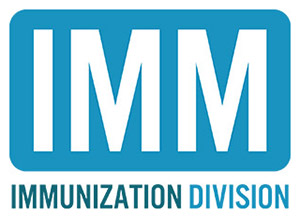
- Immunization Home
- ImmPRINT
- Immunization Quality Improvement for Providers (IQIP)
- Vaccines for Children Program
- Case Counts
- Measles Disease
- Outreach and Education
- Vaccine Information
- School Entry Survey
- Immunization Resources
- Alabama Adolescent And Adult Vaccination Task Force
- Data Requests
- Contact Us
Immunization Quality Improvement for Providers (IQIP)
The Centers for Disease Control and Prevention (CDC) Immunization Quality Improvement for Providers (IQIP) program is a quality improvement program for healthcare providers participating in the Alabama Department of Public Health (ADPH) Immunization Division Vaccines for Children (VFC) Program. The goal of the Immunization Division is to increase immunization rates and reduce vaccine-preventable diseases. Therefore, the IQIP program is designed to increase on-time vaccination of children and adolescents with the Advisory Committee on Immunization Practices (ACIP) recommended vaccines, thereby reducing missed opportunities to vaccinate and improving immunization delivery to help make healthcare provider practices more efficient at the provider level.
IQIP Benefits
- Saves time and money by ensuring children and adolescents are vaccinated on time so more visits do not have to be scheduled and staff resources do not have to be devoted to catch-up vaccinations and follow-up activities.
- Allows tailored quality improvement strategies that best meet needs and provider workflow.
- Uses immunization information systems (IIS) data (ImmPRINT) to better assess on-time vaccination coverage and individual patient vaccination needs.
- Helps providers meet the current Coordinated Care Organizations (CCO) Incentive measure focused on childhood and adolescent immunization rate improvement.
- Assists in meeting Healthcare Effectiveness Data and Information Set (HEDIS) measures (a tool used by health insurance plans to measure performance/quality on important dimensions of care and service) for children and adolescents.
- Fulfills the Healthy People 2020 objective to increase the number of providers who have had vaccination coverage levels measured within the past year.
IQIP Process
IQIP is a 12-month process where ADPH immunization field staff (“IQIP consultants”) use a site visit approach with VFC providers that includes QI capacity building, immunization coverage goals and data, technical assistance, education/information, and resource sharing. At the initial site visit, immunization field staff collaborates with VFC providers to review workflow and coverage goals and data for children and adolescents in their practice, and then providers choose two of the four QI strategies to implement.
Throughout the 12-month IQIP process, contact is maintained with providers’ designated IQIP coordinators via follow-up telephone calls at two- and six-month intervals to assess progress, provide technical assistance, education/information, and support, and assist the provider in successfully implementing the chosen strategies. At the end of 12 months, immunization field staff rerun coverage data and review coverage reports to discuss year-over-year changes toward coverage goals.
Immunization field staff provides technical assistance to VFC providers to support the following four QI strategies with a list of helpful resources:
- Facilitate Return for Vaccination
(Communicates importance of returning)
On-Time Vaccination/Reasons to Follow CDC's Recommended Immunization Schedule
Growing Up with Vaccines: What Should Parents Know?
Suggestions to Improve Immunization Services
Reminder Systems for Increasing Childhood Vaccination Rates
Educational Materials for Office Staff and Parents - Leverage Immunization Information System (IIS)/ImmPRINT Registry Functionality to Support Immunization Practice
(Maximizes use, vaccination data for vaccines due, and when to administer)
ImmPRINT Enrollment Benefits, Data Exchange, HL7 Interface, EHR Vendor Guidelines, Meaningful Use
Health Care Providers “Be the Boss” Flyer
HL7 Error Guide and FAQs
Vaccine Coverage Report Card Flyer (Compare our practice against others by county and state)
ImmPRINT Manual - Give a Strong Vaccine Recommendation
(Centers on parent/provider discussion, strategy, and HPV)
IQIP - Talking to Parents About Vaccines
Fact Sheet: Tips for Talking to Parents About Infant Vaccines
Fact Sheet: Tips for Talking to Parents About HPV Vaccine
HPV Vaccine Safety Fact Sheet
HPV Resources for Healthcare Professionals
HPV Educational Materials for Office Staff and Parents
Top 10 Tips for HPV Vaccination Success
#HowIRecommend Vaccination Video Series
HPV IQ/Tools to Improve HPV Vaccination in Primary Care
National HPV Vaccination Roundtable
Cancer Prevention/HPV Vaccination in Your Practice: An Action Guide for Physicians/Nurse Practitioners
Cancer Prevention/HPV Vaccination in Your Practice: An Action Guide for Nurses and Medical Assistants
Cancer Prevention/HPV Vaccination in Your Practice: An Action Guide for Office Administrative Staff
ADPH Immunization Resources - Strengthen Vaccination Communications
(Focuses on promotion and positive vaccine messaging)
Sample Vaccine Policy Statement
Standing Orders Templates for Administering Vaccines to Children, Teens
How Nurses and Medical Assistants Can Foster a Culture of Immunization in the Practice
American Academy of Pediatrics (AAP) Immunizations Social Media Toolkit
Clinician and Support Staff Action Guides
Social Media Graphics
Social Media Resource Library
Resources to Encourage Routine Childhood Vaccinations/Social Media Content (Facebook, Instagram, Pinterest, X, Infographic, Newsletter)
CDC Immunization Quality Improvement for Providers (IQIP)
Page last updated: January 9, 2026




